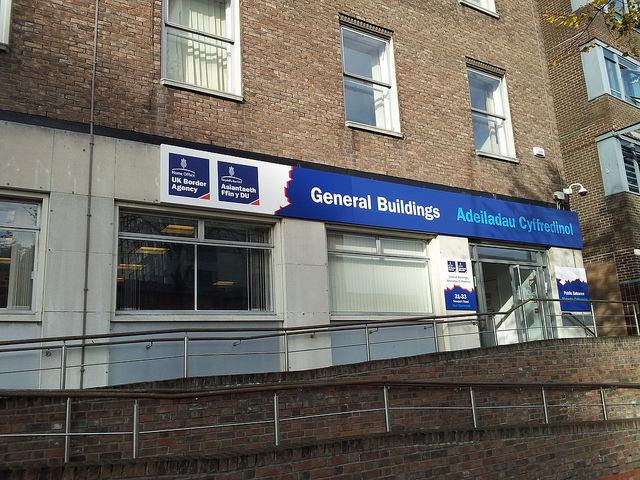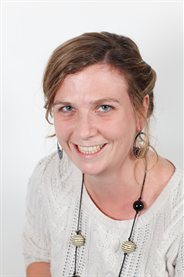The assumption that less immigration equals less inequality is fundamentally flawed
An increasingly narrow UK migration debate is centred on the shared desire to keep poor migrants out, with many arguing that mass immigration exacerbates inequality. But, as a new book by Katy Long shows, there is in fact overwhelming evidence that enabling freedom of movement can play a vital role in combating poverty and opening up opportunity, not just for immigrants and foreigners, but for the poor here too. Restrictive migration law only serves to entrench divisions between citizens across both economic and social spheres, she argues.

Credit: Adam Care, CC BY 2.0
New research published this week by the Organisation for Economic Cooperation and Development (OECD) shows that rising inequality in Western societies is harming overall economic growth. This inequality problem has been called – in the words of US President Barack Obama – ‘the defining challenge of our time’. Governments scramble to promise citizens they will restore the lost promise of social mobility. But the real question is: how?
If you ask British politicians, one answer lies in restricting immigration. As the May 2015 General Election approaches, fears over immigration look set to remain centre-stage. And although their policy proposals vary, Cameron, Farage, Miliband et al. seem agreed on one fundamental, that mass immigration exacerbates inequality. ‘Ordinary, hard-working people of this country’ do not benefit from mass migration, instead they lose wages, jobs, opportunities that were previously theirs.
It’s a seductive narrative; the success of the anti-immigration UKIP in the May 2014 European elections was partly a result of a campaign that insisted immigrants keep Britons poor. For if the problem is inequality, and ‘uncontrolled, mass immigration displaces British workers, forces people onto benefits, and suppresses wages for the low-paid’, then surely the equation is simple. Less immigration = less inequality.
Yet as my new book The Huddled Masses: Inequality and Immigration shows, this assumption is fatally flawed. There is in fact overwhelming empirical evidence that enabling freedom of movement can play a vital role in combating poverty and opening up opportunity, not just for immigrants and foreigners, but for the poor here too.
It is relatively easy to make the argument that freedom of movement furthers global justice. The World Bank has estimated that up to 50 per cent of a person’s income is determined by only one variable – their country of citizenship. And in a world where only 3 per cent of us are international migrants, our country of citizenship is overwhelmingly an accident of birth. Migration offers an obvious means to overcome these arbitrary inequalities of birth: the United Nations Development Programme determined in 2009 that migrants who moved from a low-income to a high-income country saw, on average, a 15-fold increase in income, a doubling of education enrollment rates and a 16-fold reduction in child mortality numbers.
What is more difficult is to work out when migration is in the interests of citizens. After all, the most persuasive progressive case for the continued relevance of nation-states isn’t to be found in an appeal to patriotic nostalgia: it’s to be found in the working of institutions and services – schools, hospitals, transport – that make the promise of equality at the heart of citizenship something tangible. Yet in insisting that immigration exacerbates inequality, we are ignoring the vital contributions that migrants – including the low-skilled and low-waged – make to the continued functioning of our social contract, not just as anonymous tax-payers but often as the human face of our health, social care and education systems.
And what is worse, we are also in the process of creating an immigration system that – supposedly bent on protecting “our” poor from “those” migrants – is in fact fast turning legal migration into a privilege accessible only to corporations or those with personal wealth. These new migration policies are not just cynical but regressive: they often harm the very citizens they are ostensibly designed to protect.
Two examples help illustrate to how migration law is entrenching divisions between citizens across both economic and social spheres. First, new minimum income requirements that mean 47 per cent of the British public – and 60 per cent of women – now fail to meet the minimum income required in order to sponsor a foreign relative into the country. Since July 2012, anyone wanting to sponsor their non-EEA spouse’s visa for the UK must show that their annual income exceed £18,600 (rising to £22,400 for a spouse and a child, with an additional £2,400 asked for every further child). Those affected aren’t paupers, just average families, including many who work in public service jobs like nurses and classroom assistants. While this is a policy ostensibly aimed at keeping poor migrants out, researchers from Middlesex University have concluded that this policy not only risks creating a tier of second-class citizens, but it may in fact end up costing the UK taxpayer up to £850 million in the next decade. This is because UK citizens who have been left coping as single parents while their partners wait in immigration limbo are unable to take-up full-time employment and are forced to rely upon state benefits.
A second example of migration law entrenching division is the growth of the billion-dollar Migration Industry. At first glance it might seem less obvious why the industry – populated by such multinational conglomerates as G4S and Serco – also disadvantages poor citizens. After all, new detention centres and border patrols help to employ thousands of citizens, often for low wages and in geographically marginalised areas where job opportunities are scarce. As researchers found in March 2014, when interviewing locals in Weymouth about the opening of new detention centre the Verne, ‘‘everyone ‘knows someone who knows someone’ who will work at the Verne… it’s all about jobs”.
Yet these jobs are low-paid and precarious: these workers do not share in the profits of the migration industry. Trade unions have consistently produced evidence that employees of companies like G4S and state border agencies like United Kingdom Border Agency (UKBA) are often poorly trained, constrained by unresponsive management structures that deliberately foster cultures of hostility. This means the migration industry does not protect Western workers from poverty as much as it entrenches them in it, taking advantage of immobility in socially marginalised and geographically isolated communities in pursuit of more profit.
What are really needed are enforcement mechanisms that protect all workers from exploitation, whether citizen or migrant. Yet as the government’s Migration Advisory Committee has pointed out, a firm can expect to be persecuted for breaking minimum wage legislation only once in a million years. And despite its vocal public critique of EU freedom of movement laws, the UK government has consistently opposed efforts to limit the ability of firms to sub-contract cheap “posted workers” from third countries, citing fears about harming British business’ “competiveness”.
The result is an increasingly narrow UK migration debate, centred on the shared desire to keep poor migrants out. But the policies we’re pursuing will not protect “our” poor as much as they will continue to entrench the privileges of capital. So if we’re really interested in fighting inequality and furthering social justice, we need to fundamentally rethink our approach to post-2015 immigration policy. As Huddled Masses concludes, this shift doesn’t have to be radical one: it can be done through measured, incremental reform. But the first, crucial step is to recognise that blindly building walls won’t work. However a more positive and progressive migration system can help to open doors – and not just for migrants, but for citizens here too.
—
The Huddled Masses: Immigration and Inequality is published by Thistle Publishing.
Note: This article gives the views of the author, and not the position of the Democratic Audit UK blog, nor of the London School of Economics. It originally appeared on the LSE Politics and Policy blog. Please read our comments policy before posting.
—
 Katy Long is a migration and refugee researcher: she is currently a Visiting Scholar at Stanford University. Since completing her PhD at the University of Cambridge in 2009, Katy has held positions at Oxford, LSE and Edinburgh universities as well as working extensively with the United Nations High Commission for Refugees. Her first book, The Point of No Return: Refugees, Rights and Repatriation was published in 2013 by Oxford University Press. She is also the co-editor of The Oxford Handbook on Refugee and Forced Migration Studies(OUP: 2014). She tweets from @mobilitymuse
Katy Long is a migration and refugee researcher: she is currently a Visiting Scholar at Stanford University. Since completing her PhD at the University of Cambridge in 2009, Katy has held positions at Oxford, LSE and Edinburgh universities as well as working extensively with the United Nations High Commission for Refugees. Her first book, The Point of No Return: Refugees, Rights and Repatriation was published in 2013 by Oxford University Press. She is also the co-editor of The Oxford Handbook on Refugee and Forced Migration Studies(OUP: 2014). She tweets from @mobilitymuse





 Democratic Audit's core funding is provided by the Joseph Rowntree Charitable Trust. Additional funding is provided by the London School of Economics.
Democratic Audit's core funding is provided by the Joseph Rowntree Charitable Trust. Additional funding is provided by the London School of Economics.
The assumption that less immigration equals less inequality is fundamentally flawed https://t.co/k2TzjHYpu2
The assumption that less immigration equals less inequality is fundamentally flawed https://t.co/k9zENDaE9X